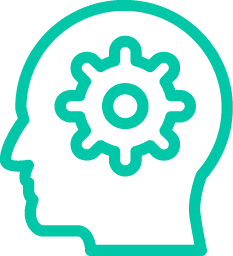Declutter
Declutter Your Home
Moments We Relate To
Dana and her sister set aside the entire day to organize their mother’s whole house. They felt like they had to get it all done at once or it would never happen. BIG mistake! They did not have the energy or focus to spend all day hours organizing. They became frustrated and less efficient as the day progressed. They felt resentful that they had to spend the day like this. Try just setting aside two to three hours on one project or space in the house. This way you’ll feel motivated to do more, not be burned out by the process.
Sound familiar? Everyone goes through similar challenges, but the way we need to approach them may be different. Let’s get started finding your just right.
Declutter
A home with significant amounts of clutter can be overstimulating and create difficulties locating a desired item, focusing on an activity, or remembering the sequence of tasks.
Declutter Handout – CLICK TO DOWNLOAD PDF | 在这里下载 | ဒီ အီၤ ဖဲအံၤတက့ၢ် | यहाँ डाउनलोड गनुर्होस्
Written by Jennifer Brush, MA, CCC/SLP
Clutter Can be Overstimulating
Individuals living with dementia have difficulty making sense of what is going on in their environment and find it hard to process information when there is a lot of stimulation. As a result, a home with significant amounts of clutter can be overstimulating and create difficulties locating a desired item, focusing on an activity, or remembering the sequence of tasks.
For most people, personal and sentimental belongings help us to maintain our identity, but for people with dementia, the loss of judgement, increased confusion and memory loss can cause a different type of response to belongings and household items. For example, a dinner takeout menu might be viewed as an important document, a Styrofoam container as an object of value. Sometimes the inability to recognize what should be thrown out can cause problems because there often remains an almost obsessive need for possessions and keeping them safe.
Often, especially for individuals living alone, the home of some with dementia will have an excess of receipts, old mail, grocery bags, magazines, etc. cluttering the surfaces and making the home unsafe for walking and sometimes unsanitary. In addition, the mess can increase confusion because the person isn’t sure exactly what to pay attention to.
Simplify and Get Rid of Clutter!
For many individuals, this is easier said than done. For example, many families tell us that they tried to clean up the kitchen for mom and throw out some of the unnecessary items, spoiled food, etc., but she became very argumentative and aggressive and told them to stop! Every person will react to your trying to help in a different way, so here are some tips you can try. Approach the person in a kind and gentle manner and ask if you can help tidy up a bit. Make sure to get the person’s input – don’t just start throwing away things without asking. Provide choices about what to throw away and what to keep. Many people with dementia like to be of service to others. Find a local charity that could really use the items you are de-cluttering (such as a women’s shelter that needs interview clothing for women) and ask the person with dementia to help this organization by donating some of their items. You may need to ask a friend or family member to invite the person with dementia on an outing for a few hours one day a week for a few weeks so you can go in and clean and organize things little by little. Often if you do this gradually, the person with dementia will not realize the changes or be upset by then. If you can’t do this on your own, consider hiring a professional organizer to help you.
As you are cleaning, separate items into four boxes labeled: Keep, Donate, Store, Toss.
KEEP are items the person needs or uses every day. Later they will be organized and put in places the person can easily find.
DONATE will go to a local charity.
TRASH is odds and ends: old receipts, papers, broken items, expired food, etc. Anything that has to be thrown away should go into the box and be removed from the home to prevent it being brought back into the house.
STORE are the sentimental items you don’t use every day but that are creating too much clutter. These items can be clearly labeled and stored, as long as there is available storage space. Some belongings can be boxed and passed down to a family member as an activity in which conversation and reminiscing is shared.
A note on storage or donations:
It is not true that if you hide something or take something out of the home that the person with dementia will forget it. Very sentimental items or things that they used to use all the time, such as clothing, jewelry, tools, and ties are often things a person remembers having and will go looking for. Some people really do not want their sentimental items stored, or if the items are not out, the person may think the items were stolen and will go through the house looking for them on a regular basis. Consider making a photo album of the stored items. Take photos of valuable items and put them in a book with a paragraph or sentence about the item underneath. This way the person can still see their items and know they are valued and cared for. If the item was given to someone, you may write about that so the person knows where some of the items are. For example: “Joan chose to give this vase to her granddaughter, Sarah, for her wedding day.”
Visual Organization
Visually organize what’s left (the “keep” items) back into the person’s environment. Visual organization means that commonly used items are:
- clearly visible
- always kept in the same place, and
- labeled, so they are easy to find.
Don’t try to clean up the entire home in a day.
This will be exhausting for you and upsetting to the person who lives there. It took a long time to collect all of that clutter, and it’ll take some time to organize it. Make a plan and target specific areas you’re going to de-clutter, clean up, and organize over a certain period of time.
If you think the person has an Obsessive Compulsive Hoarding disorder, please seek help from a mental health professional, as the approaches to assist the person will be different.
Hand in Hand at Home
There are simple things you can do to transform your home into a supportive place that helps your loved one with dementia function better. We are going to show you just how to do it.
What is Dementia?
Dementia isn't a specific disease. Instead, dementia describes a group of symptoms affecting memory, thinking and social abilities severely enough to interfere with daily functioning.
Transforming Your Home
The best home environment is one that supports the abilities of the people living there.
Declutter
Understand the negative impact of clutter and take steps to improve the home environment.
Enhance Lighting
Simple changes in lighting can be made in the home to help your loved one function more independently and sleep better.
Support Memory
Create a memory center in your home to reduce confusion and foster wellbeing.
Communicate Effectively
Use a style of communication that is easier for the person with dementia to understand and follow conversations.
Understand Behaviors
Make sense of unexpected behaviors and learn how to prevent them.
Walking About
Tips for understanding and preventing walking about as well as information about how to choose a locating device.
The Power of Choice
Given them every opportunity to make informed choices about their care, leisure time, clothing, food and anything else that affects their life.
Power of Purpose
We all need a reason to get out of bed each day. People with dementia need to know their life has meaning and purpose.
Hiring Home Care
Learn how to ease the transition to additional care partners find out what questions to ask.
Self-Care
Advice for taking care of yourself, learning how and where to ask for help and scheduling breaks from caregiving.
Get Started!
You can do this! Take one step at a time. Follow these steps to get started.



